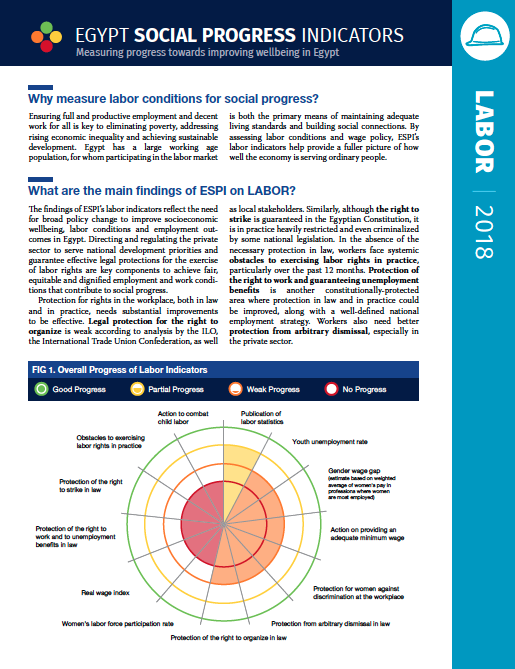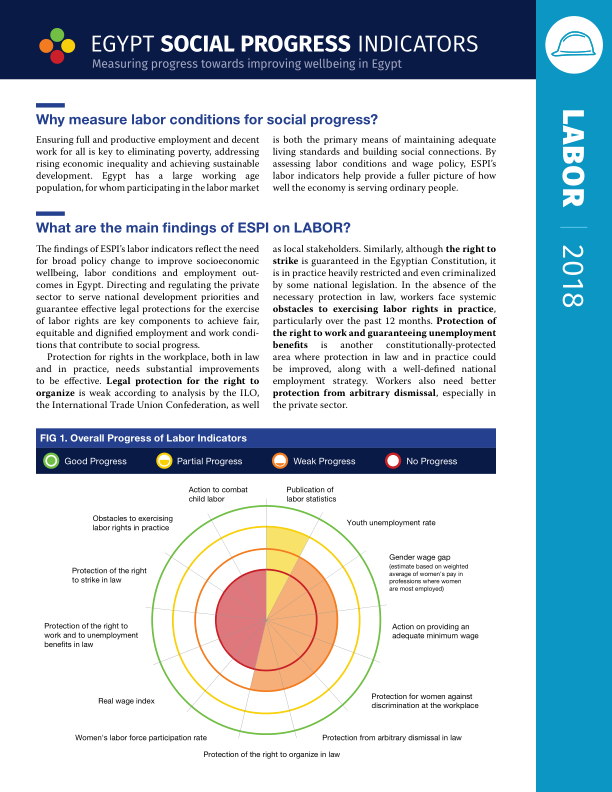The Egypt Social Policy Indicators Factsheet (ESPI) on Labor demonstrates that there is a need for broad policy change to improve socioeconomic wellbeing, labor conditions and employment outcomes in Egypt. Directing and regulating the private sector to serve national development priorities and guarantee effective legal protections for the exercise of labor rights are key components to achieve fair, equitable and dignified employment and work conditions that contribute to social progress.
Protection for rights in the workplace, both in law and in practice, needs substantial improvements to be effective. Legal protection for the right to organize and strike is weak. Protection of the right to work and guaranteeing unemployment benefits is another constitutionally-protected area where protection in law and in practice could be improved, along with a well-defined national employment strategy. Workers also need better protection from arbitrary dismissal, especially in the private sector.
The data showcased in the factsheet was derived with ESPI (Egypt Social Progress Indicators), a new metric developed jointly by CESR and its partners in Egypt, offering a more multidimensional view of the socioeconomic situation in Egypt and its human impacts. Labor is among six topics covered, including health; education; urbanization; food, water, and agricultural land; and economic policy. It uses a four-color scale, to score progress against benchmarks informed by national and international development targets, as well as human rights commitments, including recommendations from human rights mechanisms which Egypt has taken on in recent years.

